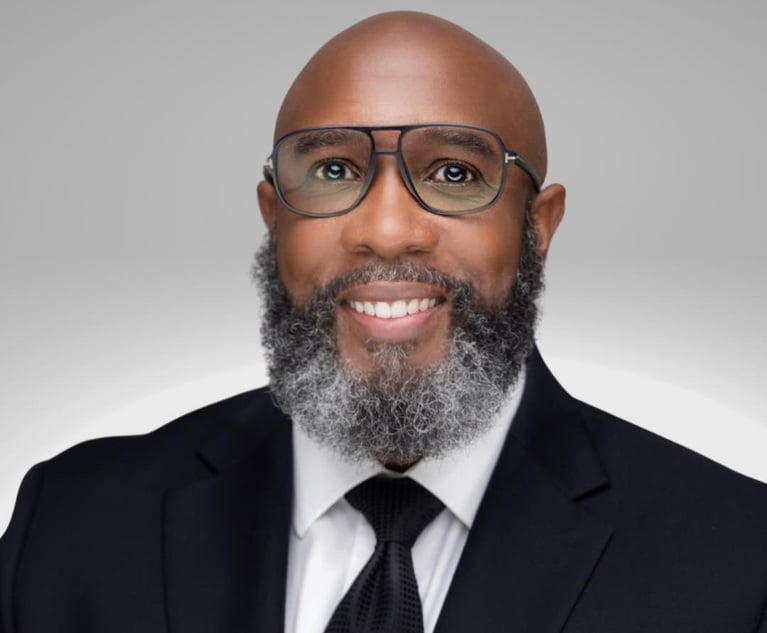Before Miami Lawyer Joel Eaton Was an Appellate Giant, He Was a Fighter Pilot
"The government spent all that money teaching me to be a crackerjack airplane pilot, so I figured I might as well use it," said Joel Eaton of Podhurst Orseck, who flies to meetings and oral arguments across Florida.
March 20, 2020 at 02:05 PM
7 minute read
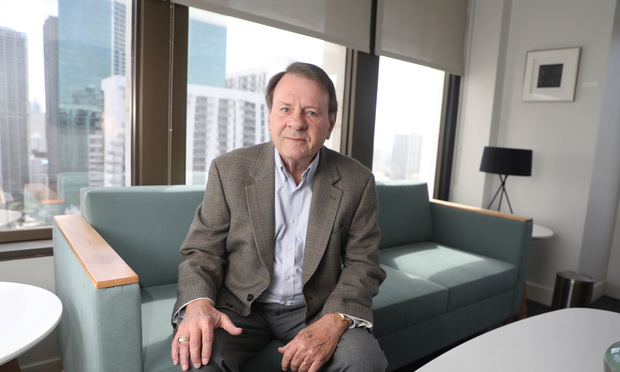 Joel D. Eaton, Podhurst Orseck. Photo: J. Albert DIaz/ALM.
Joel D. Eaton, Podhurst Orseck. Photo: J. Albert DIaz/ALM.
Miami Podhurst Orseck appellate attorney Joel Eaton might be 76, but that doesn't stop him from flying to meetings and oral arguments in his four-seat, single propeller plane—his preferred mode of transportation since serving in the Vietnam War.
Eaton earned his wings in 1968, after graduating with a bachelor's degree from Yale University through a U.S. Navy scholarship. As a fighter pilot, he flew 91 combat missions over Vietnam, and another 59 over Laos after a year's break. They were the scariest years of his life.
"Every now and then, they would shoot one of us down," Eaton said. "You had to be alert. A lot of it was out of your control. Landing on an aircraft carrier at night was pretty scary, too."
But now, Eaton said, it's rather liberating to fly himself from point A to B.
"The government spent all that money teaching me to be a crackerjack airplane pilot, so I figured I might as well use it," Eaton said. "I fly at least two or three times a month just to keep current."
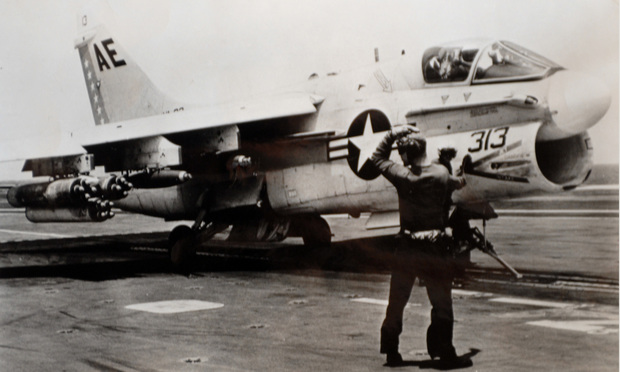 Lt. Junior Grade Eaton preparing for launch on the USS America in 1968. Courtesy photo.
Lt. Junior Grade Eaton preparing for launch on the USS America in 1968. Courtesy photo.One of the planes from Eaton's squadron became a static display at a North Carolina aviation museum, where he and his former unit members staged a reunion several years ago. There, they resolved to add to an important name to the side of that plane: Lt. Commander Scott Greiling, who died on one of their tours.
"He was a very affable guy. Always had a smile for everyone," Eaton said. "He was a capable aviator and he was very well-liked. It was a sad day when we lost him, but the war and the missions went on, never slowed down. That was life in the combat zone."
Eaton's career choices are reminiscent of his father's. Joseph Eaton flew in World War II before becoming a state senator, a Miami-Dade circuit judge and, ultimately, a federal judge in the Southern District of Florida.
And he was the Bill of Rights' greatest fan, the way Eaton tells it.
"My dad thought the first 10 amendments to the U.S. Constitution were the best documents that have ever been written," Eaton said. "They protect minority rights from majority rule, and we discussed them over many dinners at the dinner table, so I was fairly influenced by that."
While a senator for Miami-Dade County, Eaton's father introduced a bill to desegregate Florida schools. But Eaton's high school remained segregated, as that bill garnered just two votes.
"He was a little ahead of his time," Eaton said.
A Podhurst Orseck attorney through and through, Eaton joined the firm as a Harvard University law school graduate in 1975 after working as a pilot instructor. The firm came highly recommended by his father, since it handled plenty of aviation accident cases.
'You sure do write very long briefs'
Eaton began as a trial lawyer but changed lanes when Podhurst's co-founder, Robert Orseck, tragically drowned on vacation in Israel, leaving behind dozens of open appellate files.
He's since handled more than a thousand appeals, and appeared regularly before the Florida Supreme Court, the U.S. Court of Appeals for the Fifth and Eleventh Circuits, and the U.S. Supreme Court.
As a young lawyer, Eaton "figured that the judges didn't know a thing about the subject I was writing about," and used his briefs to collect as many authorities as possible to persuade them—until one morning in the Florida Supreme Court's coffee room he discovered he'd become a notorious brief writer.
"I can distinctly remember Justice Ray Ehrlich coming up to me and smiling, and saying, 'Joel, you sure do write very long briefs,' " Eaton said. " I got the message. I have learned over the years that shorter briefs are probably more effective."
Eaton gets his satisfaction from contributing to the law as it develops, often by making waves with Florida tort cases.
In one lawsuit, he represented a teenage passenger who sued Ford Motor Co. after his friend crashed into a tree and the car's fuel pump failed, igniting a fire. The plaintiff lost three limbs—something Eaton argued wouldn't have happened if the fuel pump hadn't been defective.
The Florida Supreme Court agreed, finding injured consumers could recover damages over product defects, regardless of how they came about. But the Florida legislature has since overruled that decision.
The state court also agreed with Eaton in Auburn Machine Works Co. v. Jones, finding manufacturers should be held liable for obviously dangerous products. Before that case, companies could defend their products with the "open and obvious hazard doctrine," which shifted blame to the plaintiff.
Whatever the outcome, Eaton takes on the cases that feel right.
One client, a rape victim, sued the Florida Star newspaper after it accidentally published her name, in a case that went to the U.S. Supreme Court, which, in Eaton's book, "is not a friendly place for tort victims." The justices found the First Amendment outweighed the victim's privacy rights.
'Nobody even questions it'
When former Third District Court of Appeal Judge Philip Hubbard was on the bench, Eaton was one of the two best appellate lawyers he ever saw. While Eaton's competition, Sam Daniels, wrote shorter briefs, Eaton's writing and oral arguments always had a compelling narrative flow.
"Younger lawyers would learn a great deal from listening to his oral arguments," Hubbard said.
Eaton has written for numerous legal journals, co-founded the American Academy of Appellate Lawyers, served two terms as a member of the Florida Supreme Court Committee on Standard Jury Instructions for civil cases, and chaired the Florida Bar's Appellate Court Rules Committee.
Aaron Podhurst, a founding partner of the firm, described Eaton as "sort of quiet" and famously honest.
"If he says something in oral argument, nobody even questions it. That's how good his credibility is," Podhurst said. "If he says it's in the record, it's in the record."
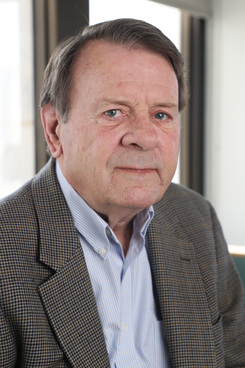 Joel D. Eaton, Podhurst Orseck. Photo: J. Albert DIaz/ALM.
Joel D. Eaton, Podhurst Orseck. Photo: J. Albert DIaz/ALM.Eaton made a point of encouraging his sons to get their private pilot certificates while in high school.
"It teaches them life lessons," Eaton said. "It says, 'You can do really hard things if you work at it.' "
If Eaton isn't in the sky or the courtroom, he's probably cutting, shaping and joining in his woodworking shop—where most of the furniture in his house was built.
And for now, at least, he's enjoying himself too much to retire.
" The law is extremely complicated, and the judges and justices are probably overwhelmed from time to time by the complexity of it. They're human, they have biases, they make mistakes," Eaton said. "It's my function to bring some clarify to the process of appellate review to persuade and hopefully, to help the judges reach a correct result. I don't always succeed, but I keep trying."
Joel D. Eaton
Born: October 1943, Miami
Spouse: Mary Eaton
Children: Douglas, Darryl and David Eaton
Education: J.D., Harvard University; B.A., Yale University
Experience: Podhurst Orseck, 1975–present
More profiles:
How Miami Construction Lawyer Adam Handfinger Feeds His Inner Entrepreneur
Pillsbury's Michael Kosnitzky Won't Apologize for Representing Billionaires
This content has been archived. It is available through our partners, LexisNexis® and Bloomberg Law.
To view this content, please continue to their sites.
Not a Lexis Subscriber?
Subscribe Now
Not a Bloomberg Law Subscriber?
Subscribe Now
NOT FOR REPRINT
© 2025 ALM Global, LLC, All Rights Reserved. Request academic re-use from www.copyright.com. All other uses, submit a request to [email protected]. For more information visit Asset & Logo Licensing.
You Might Like
View All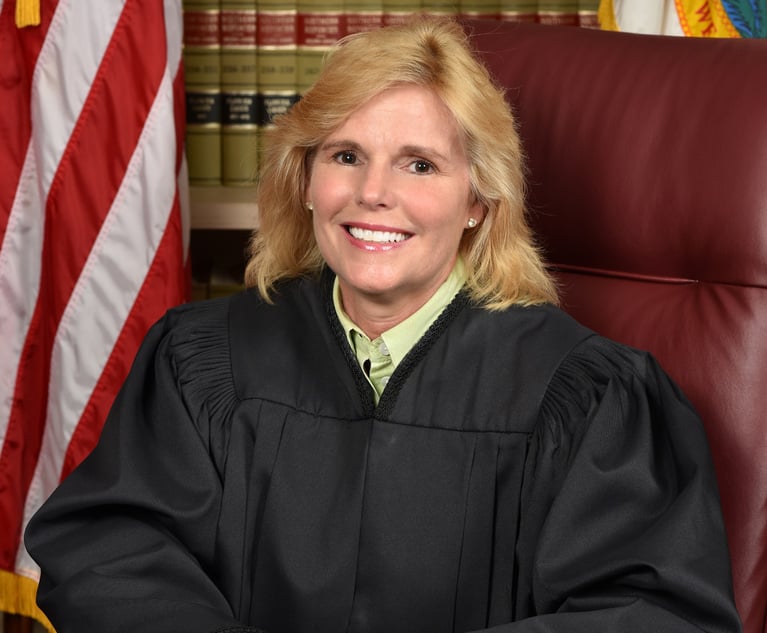
Carol-Lisa Phillips to Rise to Broward Chief Judge as Jack Tuter Weighs Next Move
4 minute read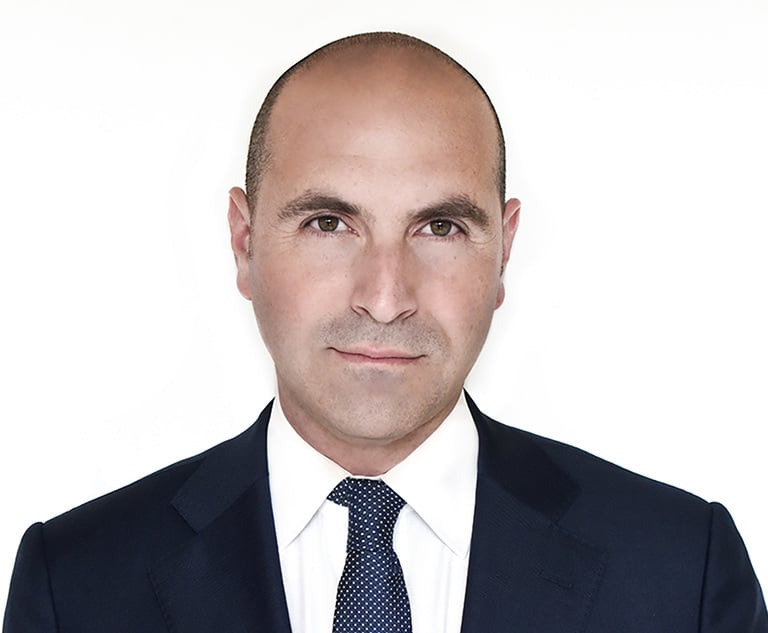
Growing Referral Network, Alternative Fees Have This Ex-Big Law’s Atty’s Bankruptcy Practice Soaring
5 minute read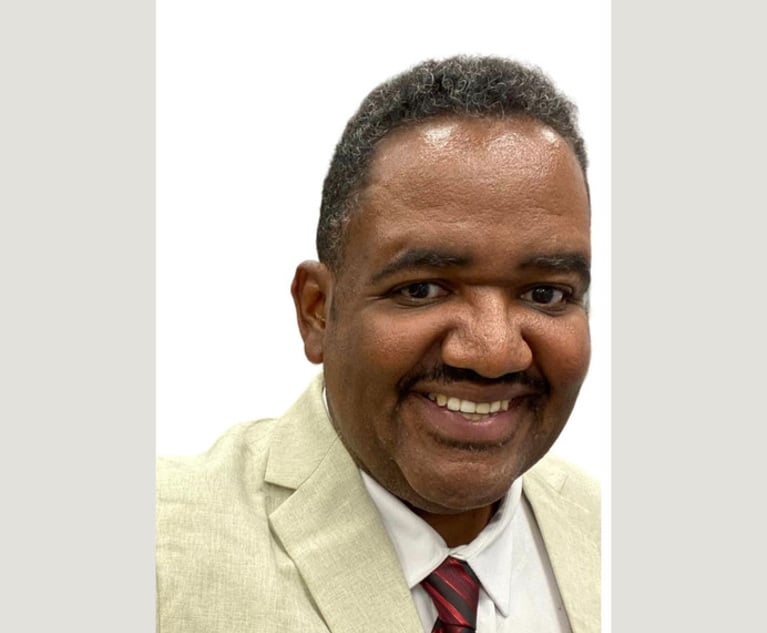
Against the Odds: Voters Elect Woody Clermont to the Broward Judicial Bench
4 minute readTrending Stories
- 1Orrick Picks Up 13-Lawyer Tech, VC Group From Gunderson Dettmer
- 2How Alzheimer’s and Other Cognitive Diseases Affect Guardianship, POAs and Estate Planning
- 3How Lower Courts Are Interpreting Justices' Decision in 'Muldrow v. City of St. Louis'
- 4Phantom Income/Retained Earnings and the Potential for Inflated Support
- 5Should a Financially Dependent Child Who Rejects One Parent Still Be Emancipated?
Who Got The Work
J. Brugh Lower of Gibbons has entered an appearance for industrial equipment supplier Devco Corporation in a pending trademark infringement lawsuit. The suit, accusing the defendant of selling knock-off Graco products, was filed Dec. 18 in New Jersey District Court by Rivkin Radler on behalf of Graco Inc. and Graco Minnesota. The case, assigned to U.S. District Judge Zahid N. Quraishi, is 3:24-cv-11294, Graco Inc. et al v. Devco Corporation.
Who Got The Work
Rebecca Maller-Stein and Kent A. Yalowitz of Arnold & Porter Kaye Scholer have entered their appearances for Hanaco Venture Capital and its executives, Lior Prosor and David Frankel, in a pending securities lawsuit. The action, filed on Dec. 24 in New York Southern District Court by Zell, Aron & Co. on behalf of Goldeneye Advisors, accuses the defendants of negligently and fraudulently managing the plaintiff's $1 million investment. The case, assigned to U.S. District Judge Vernon S. Broderick, is 1:24-cv-09918, Goldeneye Advisors, LLC v. Hanaco Venture Capital, Ltd. et al.
Who Got The Work
Attorneys from A&O Shearman has stepped in as defense counsel for Toronto-Dominion Bank and other defendants in a pending securities class action. The suit, filed Dec. 11 in New York Southern District Court by Bleichmar Fonti & Auld, accuses the defendants of concealing the bank's 'pervasive' deficiencies in regards to its compliance with the Bank Secrecy Act and the quality of its anti-money laundering controls. The case, assigned to U.S. District Judge Arun Subramanian, is 1:24-cv-09445, Gonzalez v. The Toronto-Dominion Bank et al.
Who Got The Work
Crown Castle International, a Pennsylvania company providing shared communications infrastructure, has turned to Luke D. Wolf of Gordon Rees Scully Mansukhani to fend off a pending breach-of-contract lawsuit. The court action, filed Nov. 25 in Michigan Eastern District Court by Hooper Hathaway PC on behalf of The Town Residences LLC, accuses Crown Castle of failing to transfer approximately $30,000 in utility payments from T-Mobile in breach of a roof-top lease and assignment agreement. The case, assigned to U.S. District Judge Susan K. Declercq, is 2:24-cv-13131, The Town Residences LLC v. T-Mobile US, Inc. et al.
Who Got The Work
Wilfred P. Coronato and Daniel M. Schwartz of McCarter & English have stepped in as defense counsel to Electrolux Home Products Inc. in a pending product liability lawsuit. The court action, filed Nov. 26 in New York Eastern District Court by Poulos Lopiccolo PC and Nagel Rice LLP on behalf of David Stern, alleges that the defendant's refrigerators’ drawers and shelving repeatedly break and fall apart within months after purchase. The case, assigned to U.S. District Judge Joan M. Azrack, is 2:24-cv-08204, Stern v. Electrolux Home Products, Inc.
Featured Firms
Law Offices of Gary Martin Hays & Associates, P.C.
(470) 294-1674
Law Offices of Mark E. Salomone
(857) 444-6468
Smith & Hassler
(713) 739-1250





